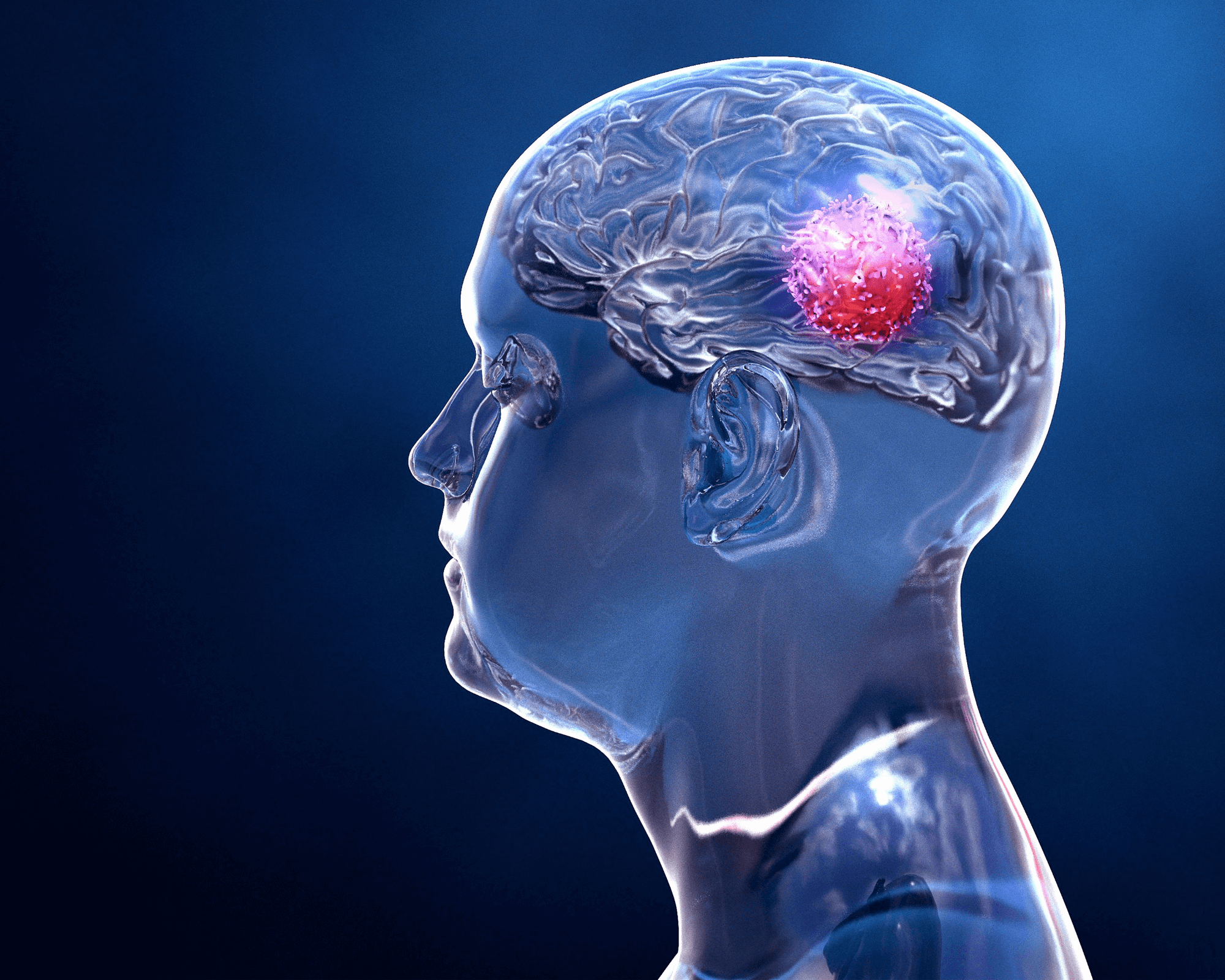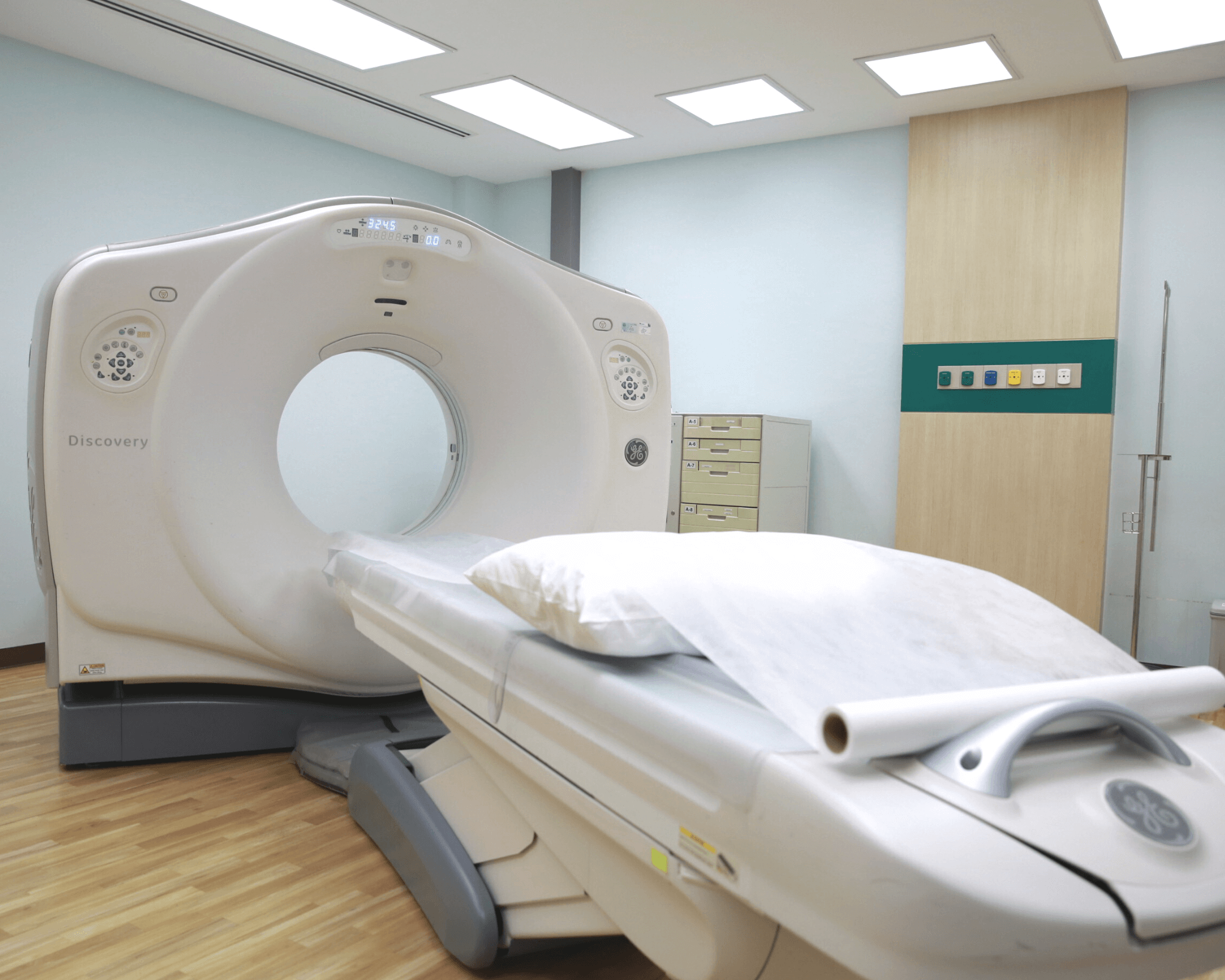Is a headache a symptom of a Brain Tumor
When you are informed that you have been diagnosed with a brain tumor, you may feel that it’s the end of your life. It’s quite normal to feel scared, hopeless or angry, but don’t you know that the majority of the brain tumors are non-cancerous and can be treated? And don’t you know that many patients with a brain tumor return to normal life after treatment? Here is information to help you understand more about brain tumors.

What is a Brain Tumor?
A brain tumor is an abnormal growth of tissue in the brain (including the structures adjacent to the brain such as brain coverings and the skull) that can disrupt proper brain function.
Types of Brain Tumors
Basically, doctors consider a tumor based on where the tumor cells originated, either from those in the brain itself (primary brain tumor) or cancer cells from another part of the body (metastastic brain tumor).
Apart from this, if a brain tumor does not contain aggressive cancer cells, it is a non-cancerous or benign brain tumor. About two-thirds of all brain tumors are benign. Most of them do not invade nearby tissue, but it can cause symptoms depending on its size and location in the brain. In most cases, it does not grow back after being removed. On contrary, if a brain tumor contains cancer cells, it is a malignant brain tumor. The cancer cells typically spread to nearby tissue and may recur (grow back) after treatment.
Common Symptoms of a Brain Tumor
Symptoms can vary according to location, size and rate of growth of the tumor. Sometimes a person may have no symptoms when the brain tumor is discovered. In general, brain tumor symptoms may include:
- Recurrent headaches
- Seizure
- Weakness
- Dizziness
- Poor coordination
- Eyesight problems, including double vision
- Vomiting
- Difficulty speaking or comprehending
- Changes in personality
- Memory loss
If you have symptoms and you think you may have a brain tumor, contact your doctor immediately.
Diagnosis
Diagnosing a brain tumor can be a complicated process and involve a number of specialists. Initially, the doctor will ask about health history and symptoms, then do a physical and neurological exam, and conduct additional tests or imaging studies depending on the findings from the history taking and physical exam.

Imaging studies: When the doctor wants to see whether there is a brain tumor, the patients will be sent for imaging studies or scans, either CT (computerized tomography) or MRI (magnetic resonance imaging). A CT scan uses a series of X-rays and computer analysis to make pictures of the brain, while an MRI uses a magnetic-base machine to do so. CT is sometimes the first test to be sent as it is easy and instantly. However, the MRI provides much more useful information but the scanning process takes longer time, probably up to two hours, resulting inconvenience and uncomfortable feeling to the patients as they have to be very still in the narrow and noisy machine.
Biopsy: A biopsy is usually required to establish the definite diagnosis and subtype of a brain tumor in order to further plan of appropriate treatment. A biopsy involves the insertion of a needle through the skull into the precise area of the tumor to obtain a small amount of the tissue for analysis under a microscope. Sometimes a brain biopsy may be done in conjunction with surgery to remove the tumor. Although both needle biopsy and surgical biopsy are usually safe, brain damage is a potential complication.
Blood Tests: Some tumors release hormones or chemical substances known as tumor markers. This may be done to subtype some kinds of brain tumor, as well as to follow up the result of the treatment.
Treatments
Treatments range from conservative (medical) treatment, chemotherapy, radiation therapy to more traditional brain surgeries or combined treatment. The appropriate treatment for each patient depends on a number of factors including the type, location and size of the tumor as well as the patient's age and general health. In general, specialists from many disciplines (multidisciplinary approach) such as neurosurgeons, medical oncologists, radiation oncologists, rehabilitation doctors and physiotherapists, nurses and so on may review and suggest the best treatment and care plan for the patient.
Surgery
Surgery is the usual treatment for most brain tumors. Whenever possible, the surgeon attempts to remove the entire tumor. If the tumor is benign and completely removed, it rarely grows back. This means it’s cured! However, if the tumor cannot be completely removed without damaging vital brain tissue, the surgeon may remove as much of the tumor as possible and the leftover will be later treated by radiation therapy or chemotherapy.
Sometimes the tumor locates deep inside the brain and surgical removal may cause severe damage to the brain, the surgeon may perform a needle biopsy (which may be done under the navigator system to pinpoint the exact location of the tumor) to obtain a small piece of tumor. This will be sent for analysis to determine the type of cells it contains in order to decide which treatment to use.
Radiation Therapy
Radiation therapy, also called radiotherapy, is the use of high-powered rays to kill tumor cells and stop them from growing. It is often used to destroy tumor tissue that cannot be removed with surgery or to kill tumor cells that may remain after surgery. Radiation therapy takes time to work. It takes days or weeks of treatment before tumor cells start to die, and they keep dying for weeks or months after radiation therapy. A major problem with radiation therapy is treatment-related side effects as it is impossible to kill all the tumor cells without damaging adjacent normal tissues. The side effects depend on many factors, such as the dose of radiation, the number of treatments, and overall health of the patient. These include brain swelling, hair loss, skin reactions, cognitive impairment (decrease in mental sharpness and ability to think and concentrate), emotional and behavioral changes, fatigue and so on. Some side effects occur very soon, some occur later (probably 2 or 3 weeks after the treatment begins) and usually gradually decrease about 3-4 weeks after the treatment ends.
Chemotherapy
Chemotherapy is the use of drugs to kill or slow the growth of cancer cells. Chemotherapy works by interfering the life cycle of the rapidly growing cells like cancer cells, so the normal cells which are actively growing will be also affected by the chemotherapy as well. These include the bone marrow (where the blood cells produce) resulting in low red blood cell count (anemia), low white blood cell count (prone to get infection) and low platelet count (risk of bleeding); cell lining in the gastrointestinal tract resulting in mouth sores, diarrhea and vomiting; and hair follicles resulting in hair loss. Basically, chemotherapy is given in cycles with periods of rest between the cycles. This allows the body to recover and build healthy cells between treatments. The medicine can be given by oral, injection into the blood stream (intravenous), the spinal canal and cerebrospinal fluid (intrathecal) or directly into the tumor during surgery. Noted that chemotherapy is not curative, but it can improve survival by several years in some patients.
Conclusion
A brain tumor is an abnormal growth of tissue in the brain or adjacent tissue that can disrupt proper brain function resulting abnormal neurological symptoms. There are many types depending on the tumor cells. Brain tumors can be treated by surgery, chemotherapy, radiation therapy or combined treatments. Neurosurgeons and specialists from many disciplines will plan for the appropriate treatment for each patient to obtain the best result.
Neurological Surgery
The Neuro Science Center of Excellence | Bangkok Hospital Chiang Mai










